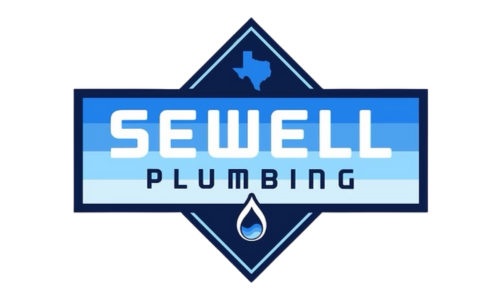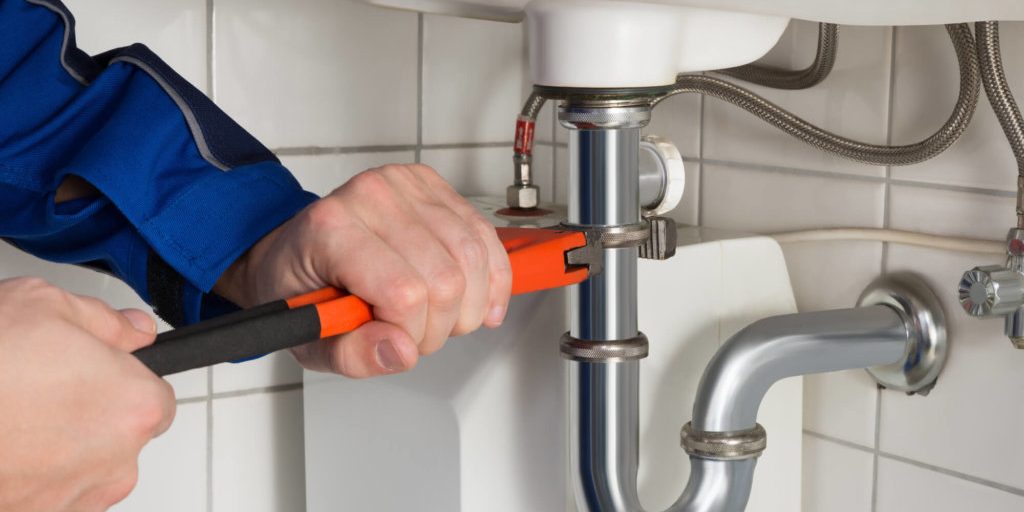Understanding who is responsible for plumbing repairs in a rental property is crucial for both tenants and landlords. Disputes over plumbing issues can lead to tension and legal complications if responsibilities are not clear. This article will clarify the roles and obligations of tenants and landlords regarding plumbing repairs, helping you avoid conflicts, and maintain a well-functioning rental property.
Legal Responsibilities of Landlords
General Maintenance Obligations
Landlords have a legal obligation to ensure their rental properties are habitable and safe. This includes maintaining structural integrity, electrical systems, and plumbing. The general maintenance obligations of landlords involve regular inspections and timely repairs to keep the property in good condition. Failure to fulfill these duties can lead to legal consequences and tenant complaints.
Specific Plumbing Responsibilities
When it comes to plumbing repairs, landlords are typically responsible for ensuring the plumbing system is in working order. This includes fixing leaks, clearing major blockages, and repairing or replacing broken fixtures. Specific plumbing responsibilities also cover maintaining water heaters, ensuring proper drainage, and addressing any issues that could affect the property’s habitability.
Consequences of Non-Compliance
If landlords neglect their plumbing repair responsibilities, they may face legal ramifications. Tenants have the right to live in a habitable environment, and non-compliance with maintenance duties can lead to lawsuits, fines, and even forced repairs at the landlord’s expense. Additionally, unresolved plumbing issues can cause further property damage, increasing repair costs over time.
Tenant Responsibilities
Routine Maintenance and Upkeep
Tenants are responsible for routine maintenance tasks that help prevent plumbing issues. This includes not flushing inappropriate items down toilets, avoiding pouring grease down drains, and reporting minor issues before they escalate. Regular maintenance and upkeep by tenants can prevent many common plumbing problems.
Reporting Issues Promptly
One of the key responsibilities of tenants is to report plumbing issues to the landlord promptly. Delaying reports can lead to more severe damage and higher repair costs. Tenants should know the proper channels and documentation for reporting issues, including whom to contact and how to document the problem.
Avoiding Damage
Tenants must take care to avoid causing damage to the plumbing system. This includes using drains and fixtures properly and not engaging in activities that could lead to blockages or leaks. Actions tenants should avoid to prevent plumbing issues include overloading garbage disposals, using chemical drain cleaners excessively, and ignoring small leaks.
Common Plumbing Issues in Rentals
Clogged Drains and Toilets
Clogged drains and toilets are frequent plumbing issues in rental properties. These problems can be caused by flushing inappropriate items or buildup of debris over time. Tenant vs. landlord responsibility: Tenants are typically responsible for minor clogs they cause, while landlords handle major blockages affecting the entire system.
Leaky Faucets and Pipes
Leaky faucets and pipes can waste water and lead to higher utility bills. Tenants should report these issues as soon as they notice them. Identifying the problem involves checking for dripping sounds, wet spots, and increased water bills. Determining who should fix it depends on the cause and extent of the leak; minor leaks might be handled by tenants, while significant issues are the landlord’s responsibility.
Water Heater Problems
Water heater issues can range from inconsistent water temperature to complete failure. Common issues with water heaters include sediment buildup, thermostat problems, and leaks. Landlord and tenant responsibilities for repair and maintenance: Landlords are generally responsible for maintaining and repairing water heaters, as they are critical to the habitability of the property.
Lease Agreements and Plumbing Responsibilities
Standard Lease Provisions
Lease agreements should clearly outline the responsibilities of both tenants and landlords regarding plumbing repairs. Common clauses related to plumbing repairs include specifications on who handles routine maintenance, reporting procedures, and response times for repairs. Reviewing these clauses helps tenants understand their obligations.
Custom Clauses and Agreements
Some lease agreements may have custom clauses negotiated between tenants and landlords. These custom clauses and agreements can specify additional responsibilities or clarify existing ones. It’s essential for both parties to agree on these terms and have them documented in writing to avoid misunderstandings.
Reviewing and Understanding Your Lease
Before signing a lease, tenants should thoroughly review the document to understand their responsibilities. Key points to discuss with landlords before signing include maintenance responsibilities, reporting procedures, and repair timelines. Clear communication and understanding can prevent disputes over plumbing repairs.
State and Local Laws
Variations in Laws by State
Plumbing repair responsibilities can vary significantly depending on state laws. Overview of different state regulations: Some states have specific laws outlining landlord and tenant duties, while others rely on general landlord-tenant law. It’s important to familiarize yourself with the laws in your state.
Local Ordinances and Regulations
In addition to state laws, local ordinances may affect plumbing repair responsibilities. Impact of local laws on plumbing repair responsibilities: Local health and safety codes may impose additional requirements on landlords. How to find local plumbing regulations: Contact your local housing authority or check municipal websites for relevant information.
Seeking Legal Advice
When disputes arise or legal clarification is needed, consulting a lawyer can be beneficial. When to consult a lawyer: If you’re unsure about your rights or responsibilities or if a dispute escalates, legal advice can help. Finding legal resources for tenants and landlords: Many communities offer free or low-cost legal services for housing issues.
Resolving Disputes Over Plumbing Repairs
Communication and Negotiation
Effective communication is key to resolving disputes over plumbing repairs. Tips for effective communication between tenants and landlords include being clear, polite, and documenting all conversations. Negotiation strategies for resolving conflicts: Aim for mutually beneficial solutions and be willing to compromise.
Mediation and Arbitration
If direct communication fails, mediation or arbitration can be useful. When to consider mediation: For ongoing disputes where both parties are willing to discuss solutions. How arbitration works for rental disputes: An arbitrator listens to both sides and makes a binding decision.
Legal Actions
As a last resort, legal action may be necessary. Steps to take if disputes cannot be resolved amicably include sending a formal notice of the issue and seeking legal advice. Tenant and landlord rights in legal proceedings: Both parties should be aware of their rights and obligations under the law.
Emergency Plumbing Situations
Defining Emergencies
Emergency plumbing issues require immediate attention to prevent significant damage. What constitutes an emergency plumbing issue: Burst pipes, severe leaks, and total loss of water service are examples of emergencies. Immediate actions tenants should take: Turn off the water supply and contact the landlord or emergency plumber.
Landlord Responsibilities in Emergencies
Landlords have a duty to address emergency plumbing issues promptly. Legal obligations of landlords during emergencies: Landlords must respond quickly to prevent damage and ensure the property remains habitable. Expected response times and actions: Landlords should have emergency contact procedures in place and act within a reasonable timeframe.
Tenant Actions During Emergencies
Tenants should know how to respond to plumbing emergencies. Temporary measures tenants can take include turning off the main water valve and containing leaks with buckets or towels. Importance of emergency contact information: Keep the landlord’s contact information and emergency plumber details readily available.
Preventative Measures for Tenants
Regular Maintenance Tips
Tenants can take simple steps to maintain plumbing systems. Simple maintenance tasks to prevent plumbing issues: Regularly clean drains, avoid flushing non-flushable items, and check for signs of leaks. Proper maintenance can prevent many common plumbing problems.
Recognizing Early Signs of Plumbing Problems
Early detection of plumbing issues can save time and money. Common indicators of plumbing issues include slow drains, unusual sounds, and water stains. When to report potential problems: Notify the landlord at the first sign of trouble to prevent further damage.
Educating Yourself on Plumbing Systems
Basic plumbing knowledge can help tenants manage minor issues and understand when to seek help. Basic plumbing knowledge every tenant should have: Learn how to turn off the main water valve and identify common plumbing components. Resources for learning more about plumbing: Online guides, local workshops, and landlord-provided information can be valuable.
Preventative Measures for Landlords
Regular Property Inspections
Landlords should conduct regular property inspections to catch issues early. Importance of scheduled inspections: Routine checks help identify and address problems before they escalate. What to check during plumbing inspections: Look for leaks, check water pressure, and ensure all fixtures are in working order.
Upgrading Plumbing Systems
Modern plumbing systems are more efficient and less prone to issues. Benefits of modern plumbing upgrades: Reduced maintenance, improved water efficiency, and increased property value. Cost-effective upgrades for rental properties: Consider replacing old fixtures with water-saving models and updating outdated pipes.
Providing Clear Guidelines for Tenants
Clear guidelines help tenants understand their responsibilities and prevent issues. Creating a tenant handbook: Include maintenance tips, reporting procedures, and emergency contact information. Educating tenants on proper plumbing use: Provide information on what can and cannot be flushed and how to avoid common issues.
Case Studies and Real-Life Examples
Tenant Experiences
Hearing from other tenants can provide valuable insights. Stories of tenants dealing with plumbing issues: Examples of successful resolutions and lessons learned. Lessons learned and advice for other tenants: Practical tips for managing plumbing problems and communicating with landlords.
Landlord Solutions
Experienced landlords can offer best practices for handling plumbing repairs. Examples of proactive landlords handling plumbing repairs: Successful maintenance strategies and effective communication with tenants. Best practices from experienced landlords: Regular inspections, prompt repairs, and clear tenant guidelines.
Mediation Success Stories
Mediation can resolve many rental disputes effectively. Cases where mediation resolved plumbing disputes: Real-life examples of successful mediations. Key takeaways from successful mediations: The importance of open communication and willingness to compromise.
FAQs
- Who pays for plumbing repairs in a rental property?
General rules and exceptions.
- Can a tenant withhold rent for plumbing issues?
Legal considerations and processes.
- What should a tenant do if the landlord refuses to fix plumbing issues?
Steps to take and legal options.
- Are tenants responsible for minor plumbing repairs?
Clarifying minor vs. major repairs.
- How often should landlords inspect plumbing systems?
Recommended inspection schedules.
- Can tenants be charged for plumbing repairs?
Situations where tenants may be liable.
- What is considered an emergency plumbing issue?
Examples and immediate actions.
- How can tenants prevent plumbing issues?
Maintenance tips and best practices.
- What should be included in a lease agreement regarding plumbing repairs?
Key clauses and provisions.
- Where can tenants find legal help for plumbing disputes?
Resources and contact information.
Conclusion
Understanding who is responsible for plumbing repairs in a rental property is essential for maintaining a harmonious landlord-tenant relationship. Clear communication, regular maintenance, and knowledge of legal responsibilities can prevent many issues. Whether you are a tenant or a landlord, being proactive and informed will help ensure a well-maintained property and avoid costly disputes.







